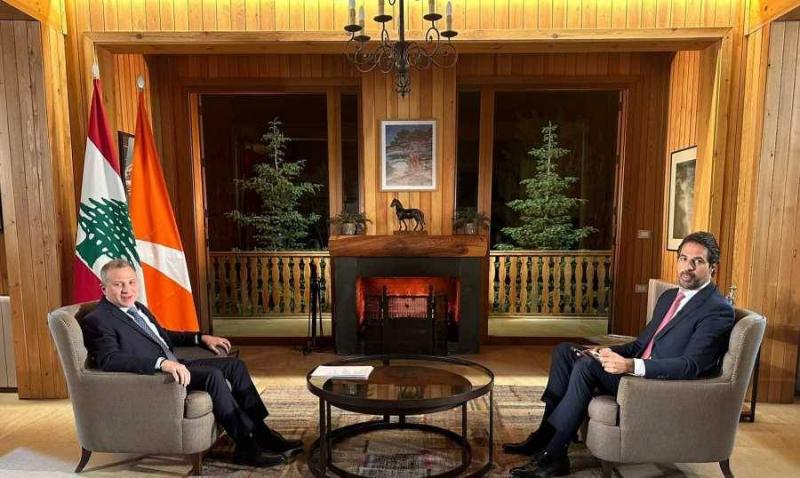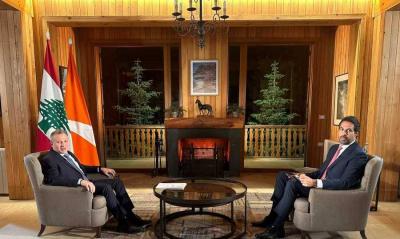The head of the Free Patriotic Movement, MP Gebran Bassil, noted that there are several existential crises such as the economic crisis, the Syrian refugees, the disintegration of the state, and the ongoing war, all of which equate to migration. Bassil stated in an interview on "LBCI" that "France should have learned from its support for the head of the Marada Movement, Sleiman Frangieh, that there is no chance for the 'confrontation candidate' to reach the presidency, and there are parties that reject Frangieh."
He observed that "the opposition team operates under the logic that they will support a candidate to challenge Hezbollah, yet they do not possess the veto power." Bassil confirmed that "the meeting with the French ambassador was good, and it is clear that there is an understanding of the Lebanese situation, and the third option is consensus. We are a people capable of adapting despite all the crises, which is both good and bad."
He added, "We did not need the quintet committee for consultations to reach the election of a president, and I am in favor of consensus, not election, because through election, the president will be fought." He continued, "We won the presidency six years ago, and the return has not been positive for us. Migration must stop to preserve the Christian presence." He mentioned, "We, along with the Socialist Party and the Moderation Bloc, see that consensus is the best choice, and if it does not happen, we will opt for elections instead of a vacuum."
He stressed that "consultation should not become a custom before elections." He further noted, "We said 'no' to certain names and 'yes' to others, and we paused before some names, particularly the acting director-general of the general security, Major General Elias Beiruti, which has been put forward before."
He continued, "I support enhancing the powers of the president to become a regulatory figure, and I support the Bkirki document, but it is not sufficient on its own; it needs to be translated into a concrete action plan and must be nationally oriented and rooted in reality." He argued that the "required profile for the president should be 'protecting Lebanon and building the state'," pointing out that "we have proposed a constitutional amendment to elect a president by the people through two rounds: the first among Christians to ensure their representation, and the second at the national level, and our confessional system is weak: 'Come to a civil state.'"
He emphasized that "the president represents the Christian component in the Lebanese structure and represents all Lebanese when he becomes president." He added, "We signed a memorandum of understanding in 2006 to protect Lebanon and defend it and for a defense strategy, and we are not responsible for liberating Palestine. Hezbollah has changed its stance due to regional policies that are beyond Lebanon."
Bassil clarified that "the Lebanese army states that it is unable to control the borders with Syria against illegal entry; can it control the borders with Israel?" He added, "I have not seen that Lebanon has achieved anything in supporting Gaza, and the Lebanese do not want war in Lebanon, nor does Nasrallah want war in Lebanon. He clarified that Syrian President Bashar al-Assad took a principled stance and kept his country neutral regarding the war in Gaza."
Bassil stressed that "the identity of Lebanon has always been threatened, and while I accept differences, I do not accept a model being imposed on me." He expressed his fear of "sliding into a comprehensive war, and Hezbollah cannot be reassured that it has sufficient deterrent power against Israel."




